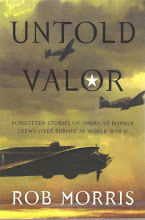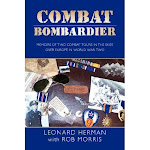
University of Washington students recently protested against having a statue of UW graduate Gregory 'Pappy' Boyington erected on the campus in Seattle, claiming he was a "poor example" to current UW students. The statue was narrowly rejected by the university administration, and this was seen as a huge victory by the progressive minds on the campus and across the nation.
What did Boyington do that made him a bad example? He shot down 28 enemy planes. A statue honoring Boyington, according to the protesters, would glorify killing.
In their scamper to be politically correct, they overlooked the fact that had Pappy Boyington and other WWII airmen not shot down the enemy, UW might be a Japanese institution. Would the Japanese have treated the people of Seattle better than they treated the conquered people in China and Southeast Asia? Would Seattle have been treated as well as Nanking, China?
Is our communal memory of WWII so short that we now refuse to honor those who turned the tide of war and kept the world free because they had to kill the enemy to do so?
Boyington was born in Coeur D'Alene, Idaho, to humble beginnings. He worked hard and had an ROTC scholarship to put himself through college at the University of Washigton in Seattle. When war broke out, Pappy had already been a Marine aviator for years. That's how he got his nickname. At age 30, he was considered an ancient by his fresh-faced young pilots.
For three months, in 1943 and 1944, he led the Marine Fighting Squadron #214, the so-called 'Black Sheep Squadron'. The Black Sheep were thus named because many of them were misfits and rejects from other squadrons, but most were also excellent fighter pilots. The Black Sheep Squadron flew out of the Solomon Islands, and was credited with downing 97 Japanese aircraft during Boyington's tenure. Boyington himself is credited with 28 enemy aircraft shot down, making him one of the war's top aces.
In January 1944 Boyington was shot down and captured by the Japanese and spent the rest of the war as a prisoner. He was awarded the Medal of Honor posthumously, because the Marine Corps thought he was dead.

 But he wasn't. Despite miserable prison conditions that included beatings and torture, Boyington rose like the Phoenix from the proverbial ashes at the end of the war, alive and well.
But he wasn't. Despite miserable prison conditions that included beatings and torture, Boyington rose like the Phoenix from the proverbial ashes at the end of the war, alive and well.Boyington's autobiography, titled Baa Baa Black Sheep, was a bestseller in 1958. In the 1970s a television series by the same name ran for two seasons on the NBC network, with actor Robert Conrad in the role of Boyington, the tough, hard-drinking but dedicated mentor to a squadron up of misfits and rejects.
 Actor Robert Conrad as Gregory 'Pappy' Boyington, during filming of the hit TV series.
Actor Robert Conrad as Gregory 'Pappy' Boyington, during filming of the hit TV series.He became a well-known American after his book came out, and the TV series in the 70's introduced millions to the valor of the Marine Corps aviators in the Pacific theater in World War Two.
Boyington died on Jan. 11, 1988, and is buried in Arlington National Cemetery. In summing up his own life, he wrote at the end of his memoir, "If this story were to have a moral, then I would say, 'Just name a hero and I'll prove he's a bum.'" Boyington knew he was not a perfect person, and like most World War Two veterans, he tended to play down his war service to his country.
It's up to those who remember to keep his memory alive and make sure he gets the respect and recognition he so rightly deserves.
Pappy, until you get your statue, I guess people will just have to pay a visit to this stone memorial in Arlington National Cemetery. I remain hopeful that one day it will be politically correct to honor you at your alma mater.








2 comments:
Excellent points Rob and BRAVO for railing against the progressive, politically correct mindset that is weakening our country. Such a mindset arises from the weakness of people who's freedom to complain was purchased by the bloodshed of others. We can never be thankful enough to the soldiers who fought and died or put their lives on the line for our freedom.
I recently read Iris Chang's book about the Nanking Massacre and, of course, the holocaust doesn't need mention. We should be eternally thankful for the soldiers who prevented this kind of thing from happening on our own soil.
Fantastikk site. Thanxx. -SDRoads
Post a Comment